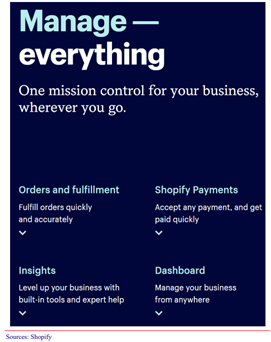
Interesting takeaways/striking quotes from Sanjay Ayer (from WCM)’s podcast
podcasts.apple.com/us/podcast/san…
podcasts.apple.com/us/podcast/san…
The sin of this industry is it doesn’t allow talent to discover itself. There is a lot of talent but is sabotaged by pomp and lack of differentiated thinking.
A lot of time in the industry goes towards minimizing career risk or trying to sound smart. In December 2010, at Yum Brands’ analyst day, Taco Bell went through their advertisements for some random product, and he was taking notes. He realized what he was doing felt useless.
It’s easy to confuse business with productivity without thinking of return on time. ex: chatting with 26 companies over 4 days doesn’t mean much. How many insights did you gain really?
In the industry there is a lot of 1) groupthink and 2) fixed mindset. There’s benchmark hugging, doing what everybody else is doing, no original thought, information gathering & the same processes over and over again. To get different results, you have to do something different.
Irony of investing is if you try to make money all the time, you’re less likely to make money over time (ex: timing every cycle). The more decisions you make, the more room there is for error.
Having a big imagination is controversial and difficult to model companies because
Having a big imagination is controversial and difficult to model companies because
of anchoring to current growth rates. Ex: say it’s 2007, and a junior analyst tells his PM Amazon would be growing at 25% in 2019, the analyst would get laughed at. It’s hard to have an imagination to model out tail years optimistically. And that created an opportunity.
But this can go both ways and lead to overvaluation for some companies.
People get cause and effect wrong in company performance and culture. Need to distinguish between a company being at the right place at the right time and something great about its DNA.
People get cause and effect wrong in company performance and culture. Need to distinguish between a company being at the right place at the right time and something great about its DNA.
If you’re not cringing at the work you did 5 years, you’re probably not getting better. 2 weeks a year at WCM, they just think about how they’re spending their time. People waste years of their life not being willing to waste hours of their life.
They audit time spent, question whether they really get better, did they start thinking differently. Have to stay on top of things and show vulnerability. Ex: At an offsite, Mike Trigg made a 50-deck slide with all the mistakes they’ve made, just to show how fallible they were.
They’re all generalists but are big believers in pattern recognition. So not studying history is a disservice to yourself. Lots of their variant perceptions are earned just by connecting dots from different industries and companies.
As you get more resources, you can lose scrappiness. It starts with self-awareness, and being aware of true returns on time spent. Ex: they went to China 7 years ago not to speak with companies, but just to learn about WeChat and how it would leverage its messaging platform to
get into payments (reminds me of Whatsapp!) and spent time chatting with developers and users instead of the sell-side sponsored company meetings where it’s difficult to get proprietary insights.
4 types of decisions drive alpha: 1) is a company’s success sustainable, 2)for a company that isn't doing well, it is temporary or structural? 3) In the future, is a company going to navigate its challenges? 4) In the future, will the company be able to seize opportunities?
Then culture comes in and when you apply it to these 4 frameworks, odds of being right increase greatly. Too many analysts spend too much time predicting the future too specifically. A different lense: does the company have the DNA to capitalize on opportunities?
Culture is a margin of safety. Ex: Amazon, in 2006-07, impossible to predict AWS becoming a juggernaut. But easier to predict infrastructure IT services would come along and Amazon would be quicker at pouncing on it than Google, Oracle & IBM, thanks to its superior culture.
When there are challenging times like 2020, it’s great for reflection, and seeing which companies were previously just cruising because of great industry tailwinds versus those who were truly agile. Culture is the leash you give the company to execute.
What makes a great investor? Lots of opposing characteristics, need to be very disciplined, but also very flexible. Need to have conviction but also need to embrace cognitive dissonance. Need to be able to focus but also the ability to multi-task.
• • •
Missing some Tweet in this thread? You can try to
force a refresh





